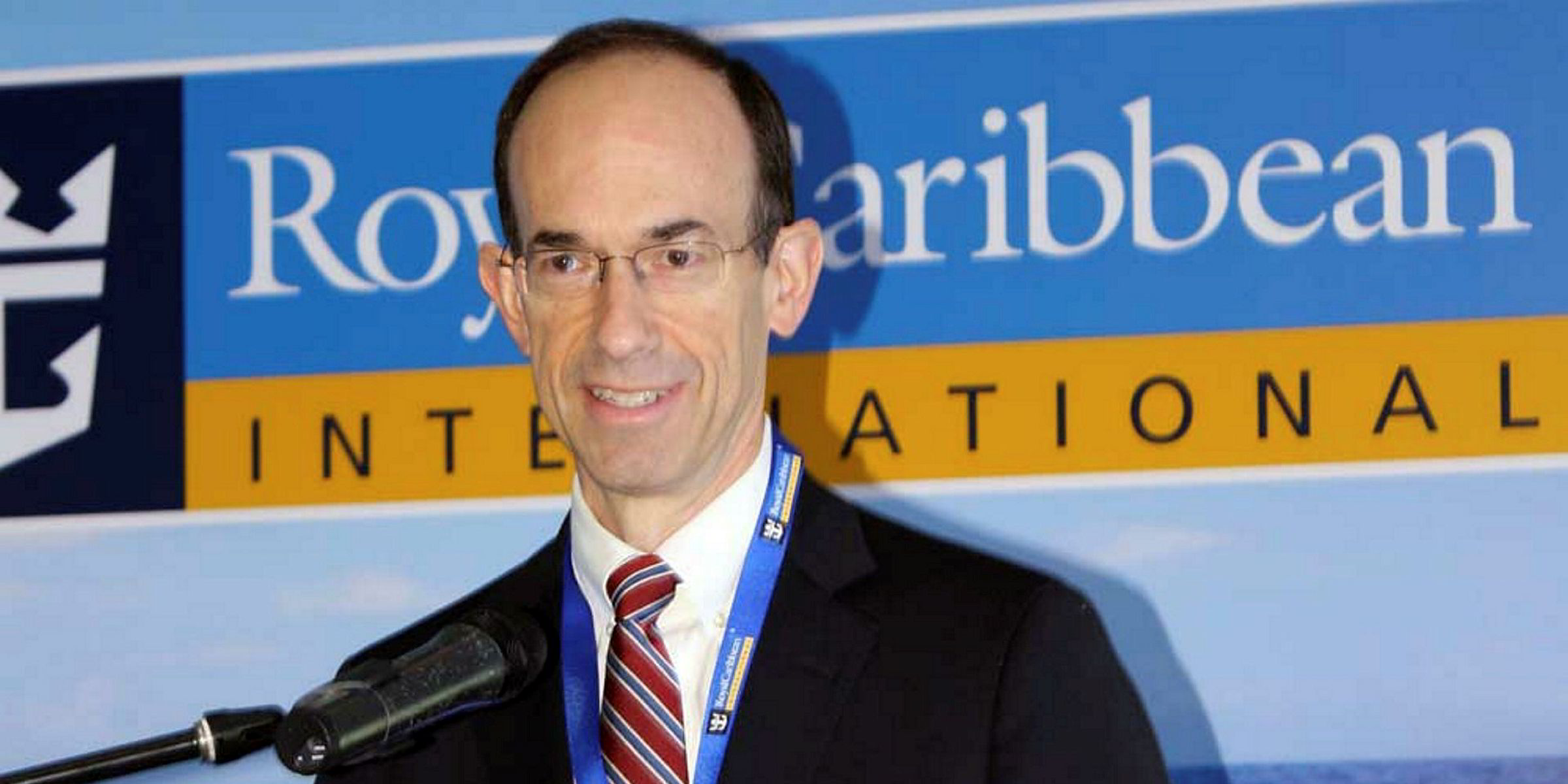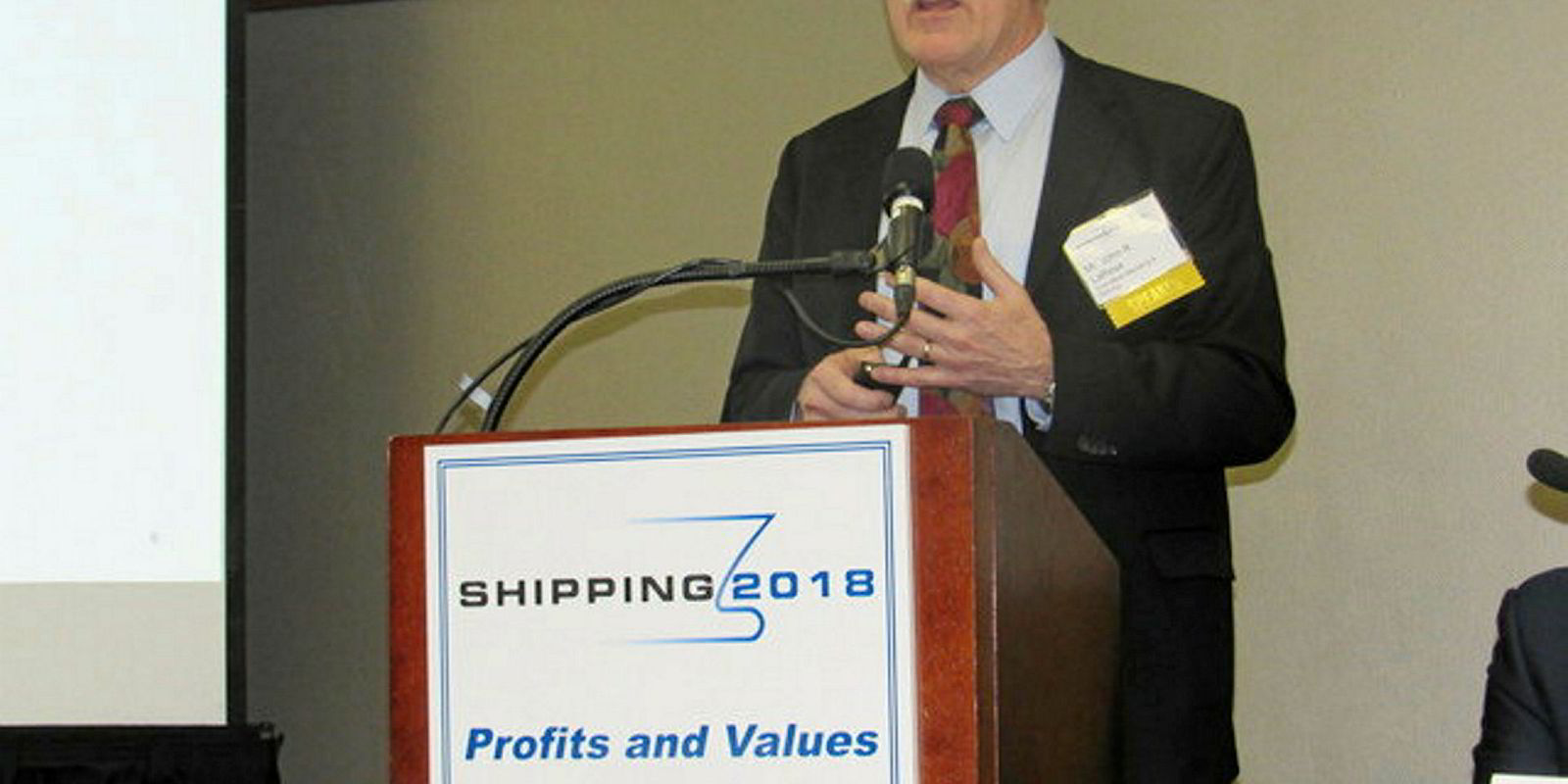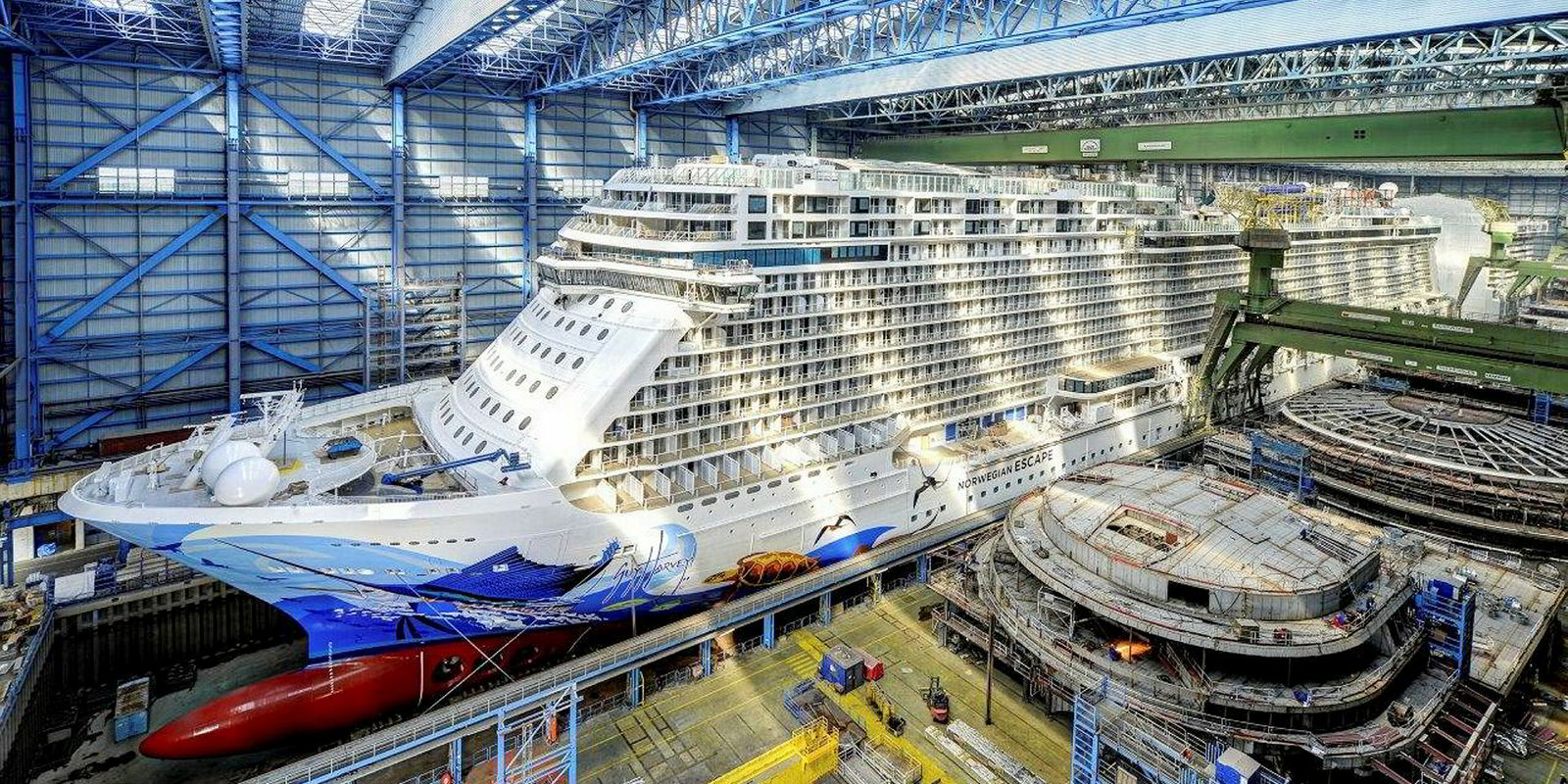Royal Caribbean Cruises will rely mostly on exhaust gas scrubbers to bring its fleet within the IMO's 2020 sulphur cap, with roughly two-thirds of its ships poised to carry the systems.
The New York-listed cruise company has worked for a number of years on putting "advanced emission purification", or AEP, systems on 20 of its 49 passengerships, said president and chief operating officer Adam Goldstein on the sidelines of the Seatrade Cruise Global conference in Fort Lauderdale.
"You inject tremendous amounts of water into the exhaust and it takes the sulphur away," he said. "That is our principal strategy."
The Richard Fain-led company plans to install the AEPs on 60% to 70% of its vessels by 2020, while the rest will run on low-sulphur marine gas oil, Goldstein said. "Not on every single ship because there are reasons why the older, smaller ships can't potentially have them," he said.
"It's very difficult to fit these pieces of equipment into what are already very densely packed equipment spaces, but our engineers have done an unbelievable job," he added.
By 2020, the IMO will require that ship exhaust's sulphur content be lowered to 0.5% from today's 3.5%.
Miami-headquartered Royal Caribbean Cruises already has eight ships split among its Royal Caribbean International and Celebrity Cruises brands that use turbine engines that run on low-sulphur marine gas oil (MGO), he said.
Owners of all kinds of ships — from cruiseships to bulkers to boxships — are debating whether to install scrubbers, use low-sulphur MGO, or build or convert vessels to run on LNG or other alternative fuels to meet the IMO's 2020 standards, because they all bring different cost equations.
A scrubber installation can cost about $2m per vessel, while converting a ship to run on LNG can set a shipowner back by as much as $14m.
Cruise giant Carnival, which owns 103 passengerships, already has scrubbers on 60% of its vessels and will have them on 80% by 2020, said chief communications officer Roger Frizzell.
But the Miami-based competitor, like other shipowners, is non-committal toward using scrubbers, MGO or LNG to reduce emissions — and may even go with something else.
"The idea is what works best for our fleet and don't get too married into anything so we can make sure our options are available," he said.
"Time will tell ... and we don't know what new technologies are going to be developed," he added.
While most of Carnival's ships will have scrubbers by 2020, the Arnold Donald-led shipowner plans to use MGO on ships not equipped with scrubbers or made to run on LNG, he said.
"It's a more expensive option but we're always going to meet the requirements," he said.
He said the scrubbers are "exceeding expectations" at the moment but it needs to be seen how they will do over time. Plus, using LNG can limit a ship's range due to limited supply in some regions, he said.
Whatever the company ultimately does, Frizzell said Carnival's goal is to be an environmental leader in lowering harmful emissions from its ships.
"To do so, we've invested millions in exhaust-gas cleaning systems, we're investing millions in designing ships with LNG," he said.






